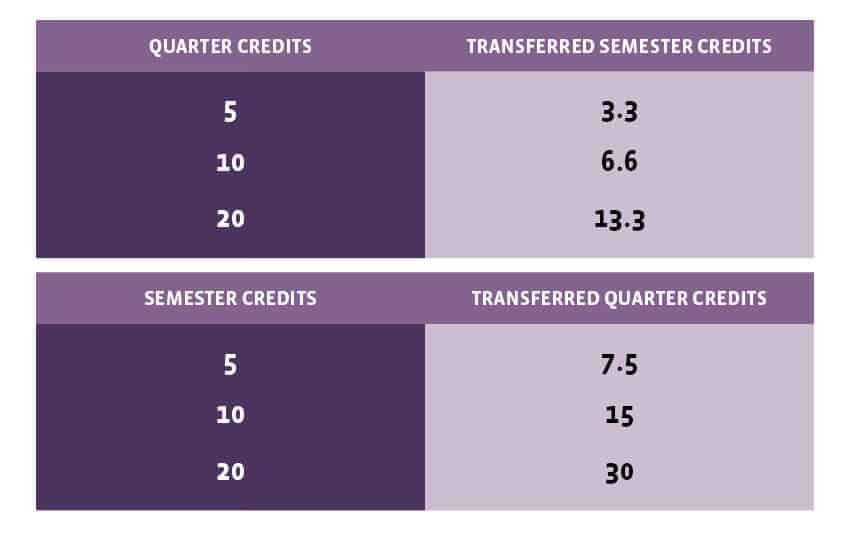Semester Vs. Quarter: Pros And Cons Of The System
Updated: May 20, 2025

If you go to college in the United States, you’ll likely attend a school that either follows a quarter or semester system. These are how the academic calendar year will be broken down, which will dictate your breaks and the pacing of the classes you take. While neither system is inherently better than the other, there are pros and cons of each. It’s normal to want to attend a school regardless of its calendar system, but let’s check out the differences between a semester vs. quarter system for those who may judge a school based on this factor.

Photo by Eric Rothermel on Unsplash
How Does The Semester System Work?
A big majority of schools in the United States operate under a semester system. The academic year tends to begin in late August and end in early May.
A semester system is designed with two semesters a year that are 15 weeks each. The first semester happens in the fall and is followed by winter break, and the second semester is in spring. Spring is followed by summer break, and this marks a year complete.
Typically, students will enroll in about five courses per semester, which tend to amount to 15 credits.
How Does The Quarter System Work?
Like the name implies, a quarter system breaks the year into four pieces. These are 10-week sessions that occur in fall, winter, spring, and summer (optional). Since the quarter system is shorter than the semester system, students tend to take less classes per quarter, averaging about 3-4 classes for 9-12 credits.
In the quarter system, school begins mid-September and ends in early July.
Benefits And Disadvantages Of The Semester System
From both a student and professor perspective, there are benefits and disadvantages of the semester system. Let’s take a look:
- In-Depth Teaching: Some people prefer that the semester system is longer as they believe it translates into more in-depth teaching. Students also have more time to complete challenging assignments. This difference could play a bigger role for graduate students who typically have to submit dissertations to graduate.
- Natural Transition: The semester system is the same way that most high schools operate. Therefore, the transition to a semester college system could feel more seamless to students.
- Student-Teacher Relationship: Since classes are formatted for longer amounts of time, students and teachers may develop stronger bonds. Also, if a student is sick or out for some reason, they may have more time to catch back up to the material.
- Shorter Classes: The extra five weeks of courses means that class times can average shorter times. The class may run more times per week, but the length of classes in the semester system tend to be 50-75 minutes, whereas some classes in the quarter system may be 90-120 minutes or more.
- Professional Development: The semester system offers longer breaks. This gives professors more time to prepare for their semester or to engage in their own research.
For the semester system, there are two major drawbacks, namely:
- If a student wants to switch their major mid-way, they’ve likely spent more money and time on classes.
- If a student does poorly in a class, it could be harder to rebound their GPA because the units are weighed more heavily since students spend more weeks in each class.
Benefits And Disadvantages Of The Quarter System
Now that we know the pros and cons about the semester system, it’s time to check out the benefits and disadvantages of the quarter system.
- Flexibility: The quarter system gives students the opportunity to take part in more classes each year. This means that there’s more flexibility to try different subjects and courses, and may even make it easier to switch majors along the way.
- Smaller Loads: Students end up taking less classes per quarter, which means that they may be able to better focus on each subject during the quarter.
- Shorter Spurts: If a student is having a hard time adhering to a professor’s teaching methods, the good news is that the class will be over in 10 weeks rather than 15.
- Short Breaks: While students may see a shorter break as a negative, it could actually be beneficial. Sometimes, the long breaks between semesters makes it harder to get back into the groove of school. In the quarter system, students have breaks but return back to school faster.
- Sabbaticals: Professors are able to take sabbaticals but still meet their annual teaching requirements during the two other quarters in a year.
One of the downsides of a quarter system is for students who may be interested in obtaining an internship. Many internships align with semester systems, so students will have to find businesses or organizations that are more flexible to adhere to the quarter schedule.
How to Transfer Between Systems
It’s possible that you’ll find yourself wanting to transfer colleges before graduating. If you want to switch from a quarter system to a semester system, or vice versa, your new school will convert the units you’ve completed. Most schools follow the same standards for conversion, but it’s possible they may not. It’s best to contact your school directly to discuss the credit conversion.
If they follow the standard conversion, it may look something like this:
The number of credits required to graduate will be different based on the type of system the school runs by. So, even though it looks like you’re either gaining or losing credits (depending on how you’re transferring), this isn’t necessarily the case.
How To Transfer Credits
Many students decide to switch colleges before they’ve earned their degree. This could be because of a career change, change of location or any other reason. No matter why a student chooses to change schools, the education they’ve paid for and knowledge they’ve learned should not go to waste. This also stands for anyone who has taken college classes during high school and wants to count them towards their college degree.
To transfer credits, you’ll likely need to:
- Get a copy of unofficial transcripts
- Review credit transfer policies at your new school
- Submit your credit transfer information and wait for your new school to audit/approve the completed credits to be applied to your degree

Photo by Andre Hunter on Unsplash
Which System Is Better?
The choice between a semester and quarter system doesn’t come down to one being better than the other. It ultimately is a preference, and as such, every student has their own preference. However, if there’s a specific school you want to attend no matter why, then the choice between quarter vs. semester system becomes a moot point.
For students seeking the most flexible college education available, then online college may be the best bet. At the University of the People, there are actually five course terms offered per year and each one spans about two months. Everything takes place online so students have flexibility to decide when they want to learn based on their own schedules and unique needs.
Regardless of whether you attend a school that operates on a semester or quarter system, the most important factor in determining your success will be your determination, motivation, and level of effort!




